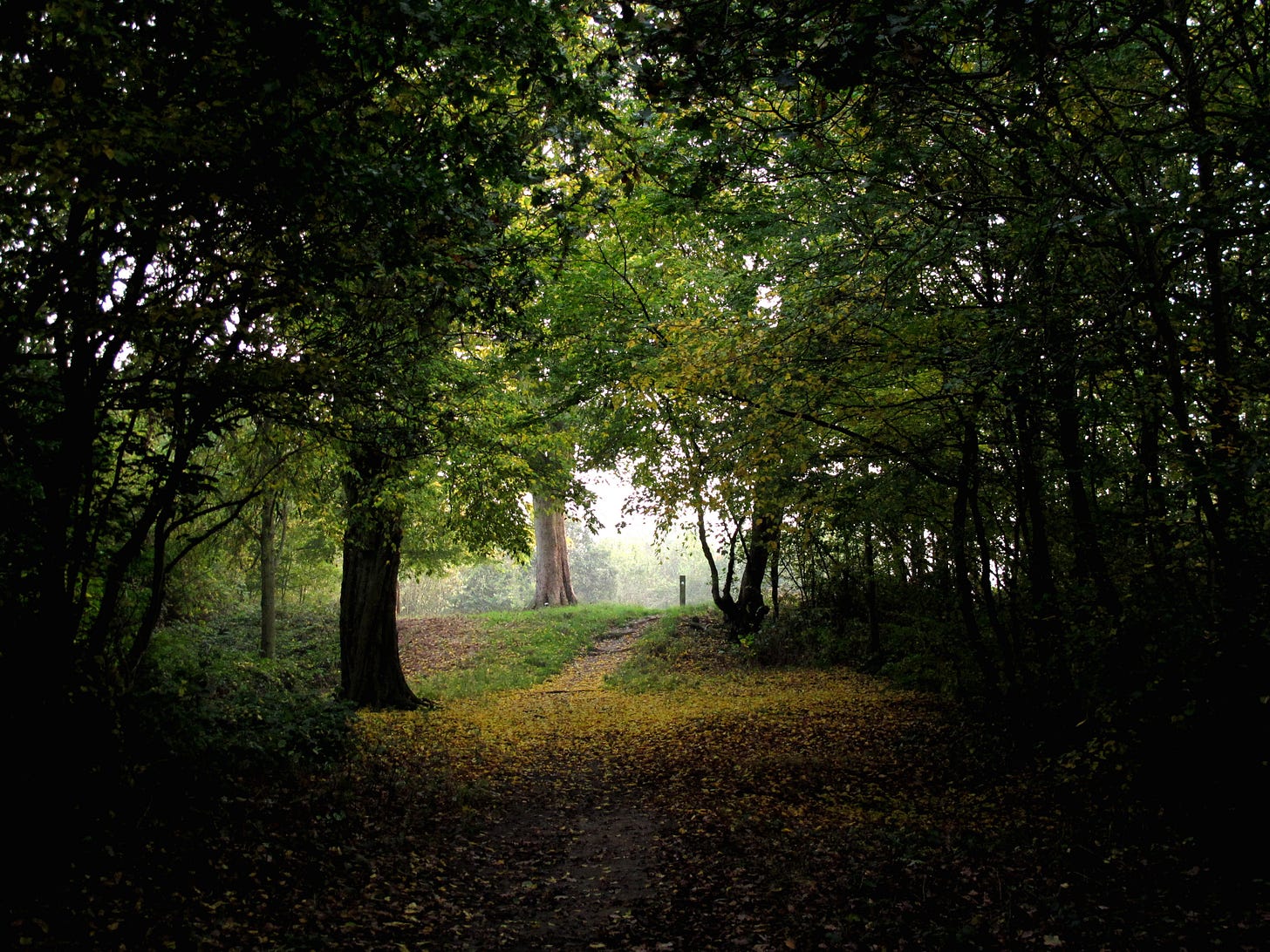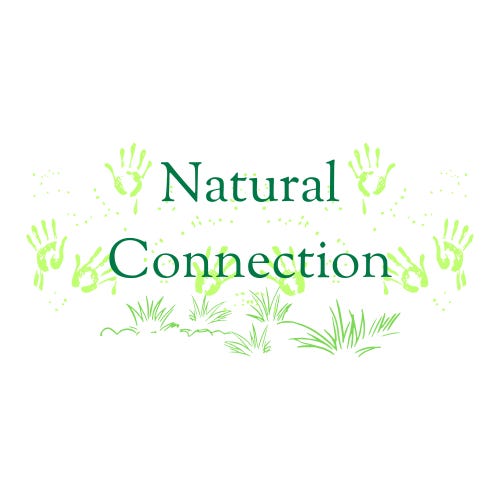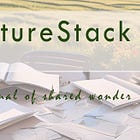🍃 Reciprocity: the interview
6 questions for Kate Howlett
Nature writer, n. A person who delights in paying attention, being astonished, and telling about it.1
“I write to inspire people, to fill people with hope and motivation to do that small thing they’ve been thinking about, to focus on their corner of the world and see what they can do to make it better. This is how we change things—through thousands of tiny actions motivated by hope and the determination that we can make a difference.” ~ Kate Howlett
Welcome to Season 2 of the Reciprocity interviews. My inbox is full of treasure in the form of lovingly observed writing about place, encounters both wild and gentle, imaginative kinship and renewed reciprocity. These thoughtful, talented writers kindled in me the desire to learn more about them.
Today’s guest,
is a writer and social ecologist based in Cambridge, UK. She lives with a snake called Luisa, a giant African land snail called Carrot and a cat called Steve. She holds a PhD from the University of Cambridge on children’s relationship with nature, and she has a background in ecology and conservation.I first encountered Kate via her thought-provoking Notes like this: “I believe that nature connection is the missing puzzle piece in turning the tide on climate change and biodiversity loss.”2 ⬅️ What she said! Her posts advance this profound idea in myriad ways—via children’s drawings, green space, lost ecological knowledge, and how nature eases grief, among other evocative topics. She sometimes includes her lovely poetry as well.
Natural Connection is about fixing our relationship with the natural world. Re-evaluating how we relate to nature is at the root of solving all our environmental problems. The environment is about so much more than just energy and climate change. It’s about our existence as just another species in the complex web of life, habitats and systems that make up our planet. Environmental action happens when we are inspired by hope, not when we are driven by fear. Kate’s newsletter is written with hope, compassion and empathy to inspire a community of people driven to take action.
Why are you drawn to nature writing?
I’ve never considered myself a nature writer, if I’m honest. I think of myself more as a writer, who sometimes writes about nature. I appreciate this sounds pernickety.
What I mean is that there are some writers who are absolutely Nature Writers—their descriptions of the natural world are second only to being in it. Their words are a treat for your senses. But I very much don’t put myself in this category.
I write about the environment, about how we can and should be doing better for it, about how I think we can achieve this. I write to inspire others and to tell stories. I hope my stories pull at people’s heartstrings in the right way, to inspire action founded in kindness and hope, not driven by fear and despair. I’m deeply drawn to doing this because I’ve always been guided by how I can use what I enjoy doing to make the world a better place.
And what I enjoy doing is writing. I’ve always loved doing this. Personally, I write about self-discovery, grief and loss, joy, the toxicity of daughterhood, and my own struggles. Since I have such a rich relationship with nature, it’s inevitable that nature features in my work more often than not. It has helped me navigate grief over recent years in a way I am truly grateful for, so I hope that, by writing about it, I can help others learn from what I have gone through.
I don’t share this kind of writing publicly all that much, although I am gaining the confidence to share my poetry, both here on Substack and over on Instagram. I’ve shared a few pieces of personal writing on Substack, and it’s these that tend to feature more classic ‘nature writing’, but mostly, my Substack is environmental writing.
This is the less personal stuff. The work that stems from my PhD research on children’s relationship with nature. This is the writing that I am driven to put out into the world. I consider it my duty to tell stories about what I have learned in the hope it will inspire others to action and change.
How does writing about nature affect you, in your work or personal life?
Writing about nature and the environment governs everything for me. It’s what I think about as soon as I wake up in the morning and the last thing I think about before I fall asleep at night. It’s stitched through my being such that I am constantly thinking about how I, and how we as a species, relate to the natural world. For this reason, it’s hard for me to draw boundaries between writing about nature, work and personal life—it’s all one for me.
While outside, have you ever experienced feeling small, lost or in danger?
Yes, absolutely. I think there’s a fine line between feeling each of these three, depending on your mental state. Often, it’s a mix of all of them. That’s what being alive feels like.
I remember camping in Devon with friends when I was 11. We were on a school trip, and the whole year group was staying together in a big, old, creaky house on the Devonshire coast. Except the house wasn’t quite big enough for all of us, so each night, a group volunteered to sleep outside in a few tents. Obviously, I volunteered.
It felt so wild and freeing, as any opportunity to camp does when you’re a child. Zipping up the tent that night to natter away with my friends for hours before actually going to sleep, I could see the sea stretching out to the horizon, and I could hear the wind blowing strongly through the pine trees above us.
But at about 3am, we were awoken by a huge storm. The tent felt like it was going to lift off the ground, and the walls were literally caving in under the heavy rain. I have a vivid memory of a teacher sticking their head into the tent and yelling at us above the howling wind and rain to grab whatever we could and run for cover.
I can’t quite remember the details of where we ended up spending the night. I only remember being soaking wet, my heart pounding and feeling like we were all so small and at the mercy of whatever the world threw at us. I don’t think we slept at all that night. About an hour or so later, I remember hearing a massive crash and looking out the window to see fork lightning striking the sea not far out from the cliffs. It left a white line on the sea’s surface that sent chills through me.
For me, this experience was so formative and remains vivid. It is a perfect mix of feeling so small, lost and in danger all at the same time, and not knowing whether this is exciting or terrifying but loving it. Looking back through my life, I feel like it’s been punctuated by experiences like this, by those that really solidify just how powerless we are in comparison to the Earth, not in a disempowering way but in a humbling, grounding way. This philosophy underpins everything I write.
What’s a favorite memory of nature from your childhood?
My favourite memory is of helping my dad clean the lawnmower on a summer’s day. I can only have been 2 or 3. I know this isn’t really nature, and that lawnmowers are in some ways the antithesis to nature growing wild in your lawn. But for me, this memory is about feeling calm and happy outside, feeling blades of grass at my feet and feeling perfectly at home.
This was one of my favourite things to do with my dad. It felt like time slowed, and the smell of freshly cut grass filled my little nose. In reality, it can’t have taken very long, but the act of sitting down on the ground with him and working on something with our hands together, outside and covered in grass, looms large in my mind. I credit these experiences with being able to feel so calm and grounded in nature now, and with loving the feeling of grass under my feet.
It’s this relationship with the natural world that is helping me process the grief of losing him so suddenly four years ago. I don’t know where I’d be without it. It’s this, also, that drives me to write about nature connection and spread the word. I can’t imagine going through grief without nature lending a helping hand.
What do you hope for, for your writing?
I hope to keep writing, and for the privilege of others continuing to read and connect with what I write. I write to inspire people, to fill people with hope and motivation to do that small thing they’ve been thinking about, to focus on their corner of the world and see what they can do to make it better. This is how we change things—through thousands of tiny actions motivated by hope and the determination that we can make a difference.
I’ve received messages from subscribers who’ve decided to start a project because of something I’ve written, and they mean everything to me. I hope I can continue to grow a community here on Substack, built of people who want to make a difference.
One day, I want to write a book to get this message out beyond Substack. I have plans—and it is somewhere along the pathway to publication. I’m determined not to give up.
A writer or other creative artist who makes you hopeful for humanity and the earth.
I’d like to mention
here. She is an artist who makes stunningly delicate paper flowers. She also runs workshops teaching this skill, all in the hope that it will encourage people to notice the world around them. She writes a Substack newsletter called The Paper Wildflower, which I just love reading. Her passion and love for the natural world shines through everything she writes and makes.I’d also like to highlight
, whose artwork I’ve been enjoying here on Substack and over on Instagram. Her prints are fantastically whimsical takes on Australian wildlife. They never fail to make me smile, and they are so uniquely her.Artists like Ling and Zinia give me so much hope—how magical—to run a whole business making paper flowers and teaching others to do the same, to create unique artworks solely to spark joy, all for love of craft and the natural world.
I truly believe that if this way of life, this attitude, were praised, highlighted and raised up more, others would feel inspired to take their own steps, instead of being filled with despair and a lack of hope. We don’t change anything like that. Do take a look at Ling and Zinia’s work.
Each season, we donate 30% of paid subscriptions to a worthy environmental cause. This season, it’s Indigenous Climate Action. They envision a world with sovereign and thriving Indigenous Peoples and cultures leading climate justice for all. Track past and current recipients here.
What did you enjoy most about this interview? I’d love to hear from you. Or share it with others by restacking on Notes, via the Substack app. Thanks!
Notes and links
If you’d like to participate in this interview series, please DM me on chat, or reach out via email: gabrielli-dot-julie-at-gmail. Find previous interviews here.
For more inspired nature writing and artwork from the best of Substack, check out the articles in our final edition of NatureStack journal.
In further service to Substack’s nature writers,
curates this lovely directory of nature-focused writers:thanks, Mary Oliver
From this post, “From research papers to real conversations.” Read in full here.









I love the line "...experiences like this, by those that really solidify just how powerless we are in comparison to the Earth, not in a disempowering way but in a humbling, grounding way" - nature can truly humble and ground us. It's experiences such as those you mention that truly convey the power that spending even just a few minutes outdoors can bring about. Thank you for sharing.
Great interview. Kate, that story about the lightning is so vivid. What a formative memory. And I love the story about your dad and the lawnmower when you were so little. It’s really sweet to envision.
Thank you both for this interview and thank you for the recommendations, Kate.